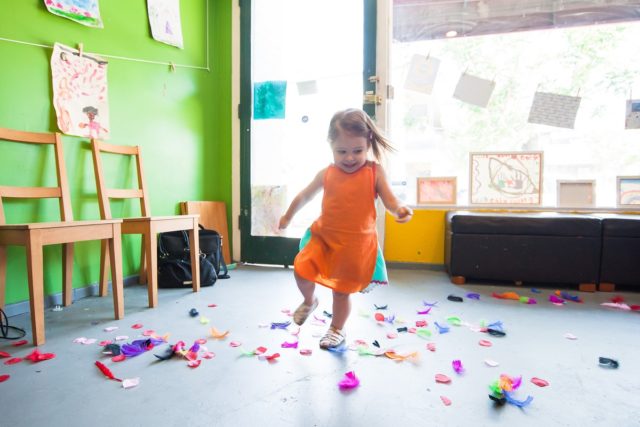What does a teacher do?
A teacher will do what it says on the tin: teach. Whether in a classroom environment, or private tuition, you’ll be responsible for creating a curriculum that will shape the learnings of young people. As part of this, you’ll need to create your own lesson plans and prepare a range of activities to keep your class engaged with your chosen subject.
What does a teacher typically earn?
According to government data, teachers typically start on an average salary of £22,917, rising to £28,660 depending on location. As you progress throughout your career, you could expect to earn up to £38,633 in England and Wales and up to £42,498 in London. Salaries also vary dependent on whether you’re full-time, or supply and can reach to an impressive £109,366 as a head teacher.
How do I get started as a teacher?
In order to become qualified, you must gain Qualified Teacher Status (QTS). You can do this by undergoing Initial Teacher Training (ITT), usually taking place in a school over a one-year period. To start training, you’ll need to have a degree, or equivalent, ideally relevant to the subject you want to teach (if you’re looking for work in a secondary school or above). You’ll also need to have GCSEs in English and Maths.
Once you’ve completed your ITT, you’ll be a Newly Qualified Teacher (NQT). This means you can start your induction year. It’s predicted that 95% of NQTs are employed in a teaching role within six months of them completing their teacher training.
An alternative option is a Postgraduate Certificate of Education (PGCE). This involves a combination of studying and teaching and takes around nine months to complete.
What key skills do I need to become a teacher?
As part of the application process, you’ll be required to take numeracy and literacy tests, to prove you have basic English and maths skills. Throughout your training and interview process, you’ll also be assessed on how you communicate, how resilient you are, your organisational skills and your ability to manage conflict.
Alongside this, you’ll need to show passion for your work and bettering the lives of young people. Schools want to employ individuals who they can trust and that will make a real difference to their pupils. Confidence is a massive bonus, especially in your ability to teach. This can be a high-pressured job and requires ongoing learning and adaptation in order to improve.
What does a teacher do day to day?
As a teacher, aside from teaching lessons, you’ll also need to plan them, mark work and get involved with extra-curricular activities. It may be that you’re on break duty, or need to lead an after work club. Anything extra that you can get involved in will help to add to your CV.
Once I’m a teacher, what career progression is available?
Within this profession, there is plenty of opportunity to progress and take on further responsibilities as you develop in your career. For example, you may be able to take charge of a particular year group and even work your way up to becoming a deputy or head teacher.
Alongside this, there is also the option of becoming a head of department. If you have a subject area and are passionate about it, this is a natural step up. Within this role, you’ll have more responsibility, especially in terms of guiding the teachers within your department.
In addition to the above, you may progress to having your own tutor group, or even become a head of year. If you show interest in the welfare of your students, this might be right for you.
What are the best bits about being a teacher?
Naturally, one of the best parts of being a teacher is the fact that you’re able to make a difference to the lives of the young people that you teach. Alongside this, the job can be extremely rewarding, especially when you can see the impact you are making on your pupils. The role of a teacher also has a lot of variety and no two days are the same.
And how could we not mention the summer holidays. Yes, you’ll have to do work throughout your time off. However, who can argue that six-weeks off over the summer period, two weeks at Christmas and other times throughout the year isn’t one of the main bonuses of getting into teaching.
What are the challenges of being a teacher?
One of the challenging parts of being a teacher is heavy workloads. After all, in your first year you’ll need to start all of your lesson plans from scratch and this can take a lot of time and effort. Alongside this, it can be difficult to deal with disruptive students. Teachers need to think on their feet and react in the right way, rather than rise to their pupils behaviour, which can be difficult to say the least!
How do I find a job as a teacher?
There are a range of ways in which you can find a job as a teacher. Firstly, you could apply directly to schools that you’re interested in working at. These might be institutions in your local area, or ones that you know are respectable places to work. Check their website for contact details and ensure that you’ve got a well put together CV and cover letter outlining why you’re the right fit for their school.
Alongside this, a lot of organisations will advertise their roles on job boards like Education Jobs. Simply register your CV and you can start searching for thousands of jobs, based on your own, set criteria.
This career is for you if…
You’re a resilient individual who loves children, is great at communicating and is looking to thrive in a challenging yet rewarding environment. Alongside this, if you’re flexible and want a job that will better your life and the pupil that you teach, a job as a teacher could be right for you.
Ready to get started? Search thousands of relevant roles today.






